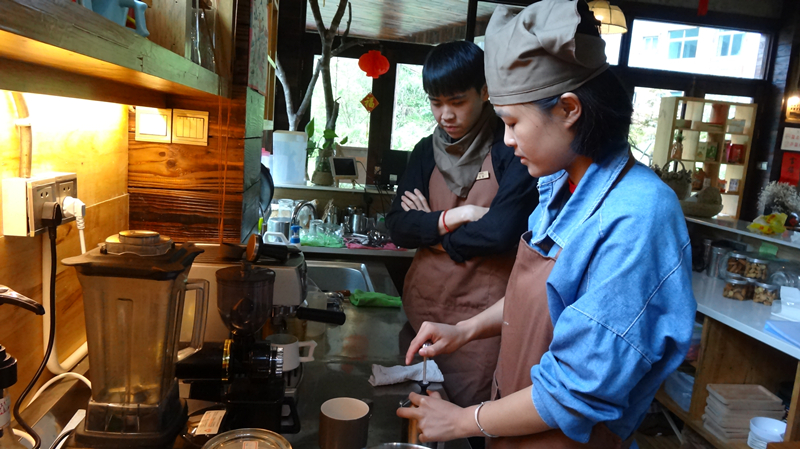Designer trains sights on rural tourism
China Daily,August 31, 2018 Adjust font size:

Project manager from Taiwan works with undeveloped villages in Fujian to help them profit from natural advantages
A grotto where Li studied as a young man, known as Li Cave, lies in a valley, with two temples a short distance away. It draws many tourists, yet in 2015 most people only made daytrips as the village offered no accommodation options, according to Chang.
She said the village had only a few hundred residents at the time, despite room for nearly 1,000, and most houses were two or three floors but usually inhabited only by one couple and their elderly parents. Her team saw an opportunity to develop homestays.
"Homestays are a mature industry in Taiwan. We like to stay in homestays when we travel, and our families transform empty rooms into homestays. But back then it was just taking off in the mainland," Chang said.
Government funds were used to help two families convert their homes into guesthouses, as well as improve the surrounding roads, and more villagers are signing up after seeing the success they have had.
Today, Jixi has 50 beds available for visitors, with prices ranging from 120 to 150 yuan ($17 to $22) a night. All are occupied in peak tourist seasons.
Chang was responsible for communicating with the residents and supervising the work, which is ongoing. "My team set the basic decoration standards and assisted the villagers," she said. "They were encouraged to keep their original living habits, such as raising chickens in the yards, as it's attractive to visitors."
Companies have also started investing in the community, such as in a meditation center and other tourism resources, creating job opportunities. Chang said the economic benefits are beginning to show, and villagers are also increasingly conscious about sanitation and the environment.
When Chang Sin-yee first arrived in Jixi village, Fujian province, she instantly recognized its untapped potential. Despite picturesque surroundings and being just 10 minutes from a popular tourist spot, by 2015, the village's population had dwindled as residents had found work elsewhere, mostly in cities.
For the past three years, she has been working to help Jixi, and other communities like it, make the most of their natural advantages to boost opportunities and incomes through tourism development.
"There are many undeveloped villages with beautiful mountains and waters in Fujian, and nearby counties and cities are rising, so now is a good time to develop the local tourism market," Chang said.
The 30-year-old from southern Taiwan works for a cultural and creative company hired by the Fujian government to revitalize the countryside.
Chang has led 15 projects so far, starting with Jixi, which was the birthplace of Li Chunye, a minister of war during the Ming Dynasty (1368-1644), as well as other historical figures.
4405f5f6-cc0b-4fce-809c-1937fb060015.jpeg)
